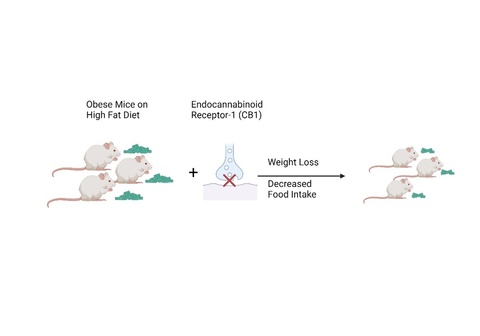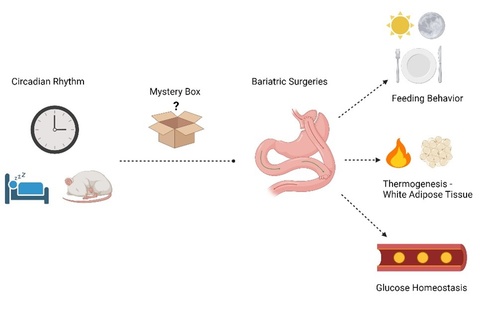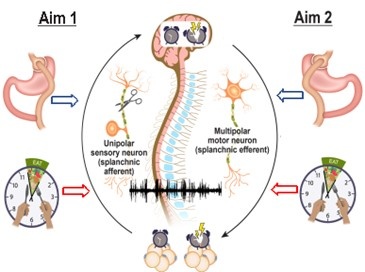Unlocking the Potential of Endocannabinoids for Weight Management
Are endocannabinoids a key to shedding those extra pounds? At our lab, we're delving into the world of endocannabinoid signaling to explore their Role in energy regulation.
Our primary focus is to uncover the pathways by which endocannabinoids translate their signals into effective weight loss actions. We are particularly interested in the intriguing gut-brain axis and its potential role in solving this puzzle, as we seek to unravel the precise processes at play. In addition to this, we are investigating how endocannabinoids respond and function in correlation with various diets and other variables.

Unveiling the Connection Between Circadian Rhythms and Bariatric Surgeries
Have you ever wondered about the relationship between the circadian rhythm and bariatric surgeries? Does that even exist? We learned that Roux-en-Y Gastric Bypass (RYGB) significantly influences the circadian rhythm and feeding behavior in mice, and this sparked our curiosity and set the wheels for our research to move on. As our investigations delved deeper, we discovered a fascinating connection. RYGB surgery appears to influence various circadian genes in the peripheral tissues, including the pivotal Clock gene among others. What's even more intriguing is that while we observed improvements in glucose and insulin profiles after RYGB, we noticed that when the clock gene was knocked out from the liver, these improvements are lost. In this project, we are committed to unraveling the mechanism by which RYGB produces the beneficial post-surgery improvements in glucose and explore the role of the liver and the responsible neurological pathways for it.

Exploring the Interaction Between Adipose Tissue and Central Clock Via Splanchnic Nerve
Does irregular sleep-wake cycles or night eating syndrome disrupt the molecular clock and hence affect diabetes and obesity? Well, correction of these disruptions resynchronized the clock machinery and eventually correct the metabolic abnormalities. Our project will test whether the molecular clock in fat tissues crosstalk with brain clock via the splanchnic nerve to induce the “previously proven” thermogenic effects of time-restricted feeding (TRF) and gastric bypass surgery (RYGB). Understanding the underlying mechanisms by which the molecular clock in adipose tissue and brain regulates energy during TRF and RYGB, will hopefully lead to more effective and less invasive obesity therapies.
